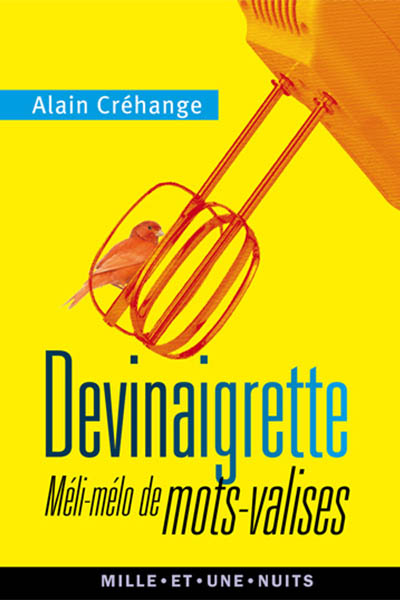 Portmanteau words
Portmanteau words The art of verbal collage
A portmanteau word is the result of the joining of the beginning of a word with the end of another. Lewis Caroll invented the terms "portmanteau word". The verbal patchwork creates efficient and often funny words.
Cut the head and add the queue: a child's play?
"Franglais" (French and English), "pourriel" (spam), "beurgeoisie" (immigrant yuppie), etc.: don't trust your spellchecker if it changes these "mots-valises" (portmanteau words) by "anglais", "courriel" (email) and "bourgeoisie". Those are often referenced in dictionaries and have an actual meaning.
The portmanteau word is a neologism relying on two processes: the apocope and the apherisis. Put simply, the deletion of the end or beginning of a word. The cut terms that make a portmanteau word can be identified through their highly recognisable lexical form of origin. Do you think you will be able to identify the words contained in the French portmanteau words "célibattante", "adulescent" or "alicament"? Most of all, do you understand the new meaning that results from this semantic and spelling collage?
Alice in portmeanteauland
"Mot-valise" is the French translation of "portmanteau word", coined by Lewis Caroll in his book "Through the looking glass" (1871). Note that this lexical telescoping exists in all languages. Did you know that "brunch" is the result of the fusion of "breakfast" and "lunch"? Or that the "smog", the famous London fog, is made up of "smoke" and "fog"?
It is indeed a language fantasy, but it is certainly not eccentric: several French portmanteau words are commonly used today, such as "bobo", a popular term created with "bourgeois" and "bohème".
An art as old as literature... and philosophy?
Portmanteau words are not a recent invention: Rabelais had already created a few in the 16th century, such as "hypocritiquement" (critic + hypocrite), Madame de Sévigné created "bavardiner" (to chat + dine) in the following century and Victor Hugo and Rimbaud invented "foultitude" (influence + multitude) and "patrouillotisme" (patrol + patriotism) in the romantic era.
Portmanteau words are hybrids and always had their place in literature... and philosophy. One of the key concepts of deconstruction, a theory designed by philosopher Jacques Derrida, relies on the combination of two terms: "différance" (deliberately misspelled) joins the term "difference" and the present participle of "to differ". This is a proof that even serious people are convinced of the creative power of portmanteau words!
To know more:
- "Ralentir, mots-valises !" Alain Finkielkraut, Seuil
- "Devinaigrette. Méli-mélo de mots-valises", Alain Créhange, Mille et une nuits